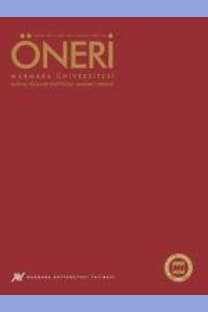A COMPARISON OF THE EFFECTS OF THE IMF PROGRAMS DESIGNED TO DEAL WITH THE ECONOMIC CRISESIN TURKEY AND ARGENTINA
Crises, Financial Crises, Financial Crises In Argentina Financial Crises In Turkey_
___
- ALPAR Emre, Z. Öniş (2001) “Financial Flotation the Democratic Deficit and Recurrent Crises in Emerging Markets: The Turkish Experience in the Aftermath of Capital Account Liberalization.” Http: papers.sym.com
- BOSTON, G. (2002) “Juggernought Joseph Stiglitz Zeroes in on Losses in the Developing World-Both Economic and Social Caused By the IMF’s Hegemony”, Boston Globe, July 28.
- BRUNO Micheal. S. Fisher (1991) Lessons of Economic Stabilization and the Aftermath, The MIT Press
- DORNBUSCH R. (2001) “A Primer on Emerging market Crises.” MIT
- DORNBUSCH R. (1993) Stabilization, Dept and Reform. Prentice Hail, USA
- DORNBUSCH R., S. Edwards, (1991) The Macroeconomics of Populism in Latin America, The University of Chicago Press, USA
- FACKLER, J & McMillan (2002) “Evaluating Monetary Policy Options.” Southern Economic Journal, 68(4)
- GRABBE, J. (1996) International Financial Markets, Prentice Hail, Englewood Cliffs, New Jersey.
- IMF (1998) World Economic Outlook and International Capital Markets Interest Assessment.
- KIGUEL M .A., N. Liviatan, (1991) The Inflation Stabilizations Cycles in Argentina and Brasil. The MIT Press
- KRUGER, P.(1995J Currencies and Crises, The MIT Press, Cambridge, Massachusetts
- LYONS, J. (2002) “Argentine Riot Poliçe Dispatched After Peso Plunge.” Buenos Aires, March 26 (Bloomberg)
- LYONS, J & D. PLUMB (2002) “Argentina Riot Poliçe Dispatched After Peso Plunge.” Buenos Aires, March 26 (Bloomberg).
- MISHKIN FS (1997) ‘The Causes and Propagation of Financial Instability: Lessons for Policy in a Global Economy.” Federal Reserve Bank of Kansas City.
- MISHKIN F. S. (2001) “Financial Policies and the Prevention of Financial Crises in Emerging Market Countries.” NBER working paper.
- ÖZEL Samhan (2000) Türkiye’de Enflasyon, Devalüasyon ve Faiz, Deniz Bank Yayınları No. 5.
- REBELO S., C. Wegh (1995) “Real Effect of Exchange Rate-Based Stabilization: An Analysis of Compete Theories.” Macro-Economic Annual. NBER
- BEATLE, A. (2002) “Rhodes urges banks to hold on in Argentina.” Washington
- BAKER Dean.,(2002) “ The Role of Social Security Privatization in Argentina’s Economic Crisis”. Çenter for Economic and Policy Research, 2002.
- SACHS J., A. Tomell, A. Valesco (1996) “Financial Crises in Emerging Markets: The lessons from 1995.” Brooking Papers on Economic Activity I.
- SERİN, V.(1998) iktisat Politikası, Alfa, İstanbul.
- STIGLITZ J. (2002) Globalization
- TRAN, Mark, Argentina Agrees IMF Plan, Specia/ Report Argentina, January 2003
- UYGUR Ercan (2001) “Krizden Krize Türkiye: 2000 Kasım ve 2001 Şubat Krizleri.” www.econturk.org/Türkiye.htm
- UYGUR Ercan (2001) “İstikrar programı ve Ekonominin Sorunları Mali Sektör.”
- ISSN: 1300-0845
- Yayın Aralığı: Yılda 2 Sayı
- Başlangıç: 1994
- Yayıncı: Marmara Üniversitesi
VERİ MADENCİLİĞİNDE BİRLİKTELİK KURALLARI
E. Serra YURTKORU, Beril SİPAHİ
ÇEVRESEL ÜRETİM YÖNETİMİ VE AMBALAJ SANAYİ FİRMA YÖNETİCİLERİNİN KONUYA YAKLAŞIMLARI
Çağatay ÜNÜSAN, Serdar PİRTİNİ, Osman Faik BİLGE
YEREL HALKIN BOŞ ZAMAN YE REKREASYON FAALİYETLERİ ÜZERİNE BİR ARAŞTIRMA: NEVŞEHİR ÖRNEĞİ ÖRNEĞİ
Cevdet AVCIKURT, M. Oğuzhan İLBAN, Kürşat ÖZCAN
BÜTÜNLEŞİK PAZARLAMA İLETİŞİMİ VE PAZARLAMA HALKLA İLİŞKİLER
